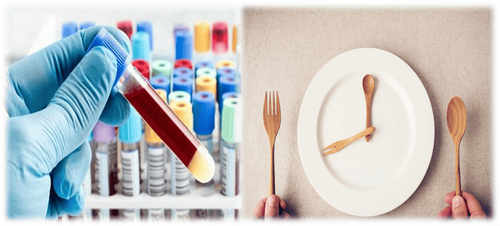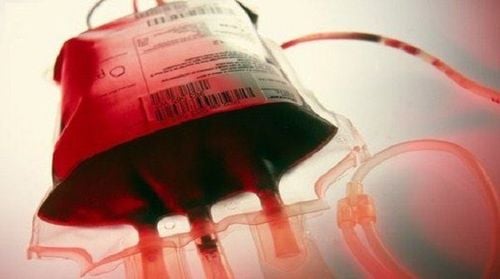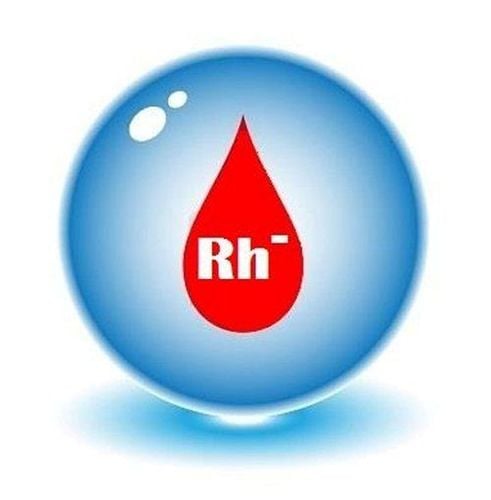This is an automatically translated article.
The article was professionally consulted with Senior Doctor, Specialist II Doan Du Dat - General Internal Medicine - Department of Medical Examination & Internal Medicine - Vinmec Ha Long International Hospital.The Rh blood group system is one of the most important blood group systems for humans besides the ABO system. However, in Vietnam, up to 99.96% of people are Rh + and only 0.04-0.07% of people are Rh negative. Therefore, people with Rh negative blood group are rare and need to be careful in blood transfusion and obstetrics.
1. What is the Rh(Rhesus) blood group system?
The Rh blood group system is one of the 35 known blood group systems in humans and plays a very important role in addition to the ABO blood group system. In which, the Rh blood group system has about 50 types of antigens, including 5 more known antigens: D, C, c, E, and e. The D antigen plays the most important and medically important role among these five antigens, so the determination of a person's Rh group is dependent on the presence of the D antigen on the surface of that person's red blood cells. The Rh blood group system is divided into two types: Rh- without D antigens and Rh+ with D antigens on the surface of red blood cells. When combined with the ABO system, it will give the blood group as we still see that is AB+, A+, B+, O-,... In Vietnam, up to 99.96% of people have Rh+ blood group and only about approx. 0.04-0.07% of people have Rh- blood group. Therefore, Rh- blood group is classified as rare blood group. Rh- blood group usually will not affect health, but in some special cases such as during blood transfusion, pregnant women, Rh- blood group is a very important factor that needs special attention. idea.
Người có nhóm máu hiếm Rh- cần phải lưu ý trong việc truyền máu
2. What should be noted when carrying the rare blood type Rh-
Checking for Rh blood type is extremely important for people who need a blood transfusion, for example from a blood loss accident or during emergency surgery. In addition, for pregnant women, it is also necessary to have a blood group test to minimize the complications caused by the mother and child's blood group incompatibility, including cases such as:When the mother has Rh + blood group and the fetus Rh-, if there is no bleeding or trauma, the mother's blood will not come into contact with the fetal blood. However, during the birth process, there may be exposure and adverse reactions. When the mother has the rare blood type Rh- and the fetus has the Rh+ blood type, the mother's body will react with the fetal blood and treat it as a foreign antigen, from which the mother's body will produce antibodies. anti D against the child's blood. During the mother's first pregnancy, the amount of anti-D antibodies produced in the mother's body is still weak and not enough to cause danger. However, in the second pregnancy onwards, if the fetus continues to carry the Rh + blood group, it will create a dangerous blood group incompatibility for both mother and baby. Anti-D antibodies produced from a previous pregnancy will cross the placenta and then enter the fetal blood, destroying red blood cells. Excessive red blood cell death leads to anemia in the fetus and can even lead to stillbirth, miscarriage and life-threatening for both the baby and the mother. When the pregnant mother has Rh(-) test results, there are possible problems for the pregnancy:
- The pregnant mother may have:
+ Hemolytic disease in the following pregnancy.
+ There may be postpartum hemorrhage and it is imperative to find the right Rh(-) blood group for transfusion.
-Children can be born with hemolysis due to incompatibility of mother and child's blood group (may occur right in the pregnancy).
In addition, babies born with maternal blood group incompatibility are at high risk of hemolytic jaundice. In case the mother has Rh- blood group, it will be difficult to get pregnant for the second time and may be in danger if there is no timely intervention. Therefore, if you have Rh- blood type, you need to follow the advice and recommendations of your doctor to eliminate the risk of having a stroke. In fact, many women with Rh- blood type can safely give birth multiple times. However, Rh+ blood group or Rh- blood group are both inherited, so couples also need to have their blood type checked to make sure their baby is born safely and smoothly.
In short, Rh- blood group is classified as a rare blood type. In cases such as emergency blood transfusion or in obstetrics and gynecology, the Rh- blood group system is very important and directly affects the health status of pregnant women and fetuses. Therefore, pregnant women need to have a blood test before pregnancy to have timely interventions to help the birth process go smoothly.
Please dial HOTLINE for more information or register for an appointment HERE. Download MyVinmec app to make appointments faster and to manage your bookings easily.













